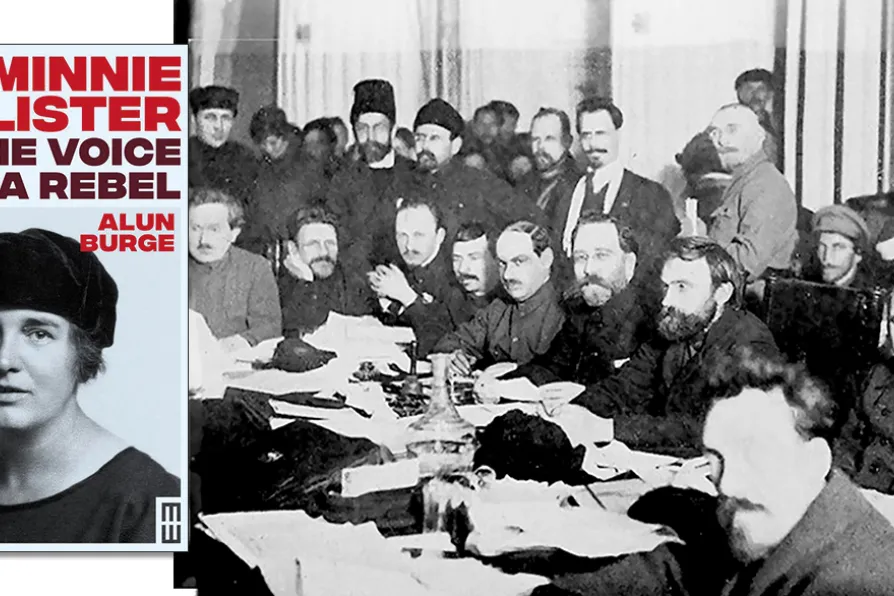New releases from The Thumping Tommys, Dan O’Farrell and The Difference Engine, and Sean Taylor

 SOLIDARITY WITH THE REVOLUTION: The presidium of the 9th Congress of the Russian Communist Party (Bolsheviks) in 1920, Vladimir Lenin first from right, at the height of the foreign military intervention by 13 states acting in unison
[Public Domain]
SOLIDARITY WITH THE REVOLUTION: The presidium of the 9th Congress of the Russian Communist Party (Bolsheviks) in 1920, Vladimir Lenin first from right, at the height of the foreign military intervention by 13 states acting in unison
[Public Domain]
Minnie Pallister: The Voice of a Rebel
Alun Burge
Parthian Books, £20
AN ADOPTED daughter of Wales, a dimly remembered heroine of the labour and peace movement, and a renowned broadcaster and journalist makes for the fascinating tale of the life of Minnie Pallister. Alan Burge’s biography of Pallister is a story of the labour movement itself.
One of three daughters born to Durham coal miner William Pallister, who became a Wesleyan Methodist minister and took his young family to live in Haverford West in Pembrokeshire in 1899. The young Minnie was the middle daughter and became a confirmed socialist and pacifist and campaigned against the Great War alongside her friends Keir Hardie and Ramsay MacDonald.

Corbyn and Sultana’s ‘Your Party’ represents the first attempt at mass socialist organisation since the CPGB’s formation in 1921, argues DYLAN MURPHY












